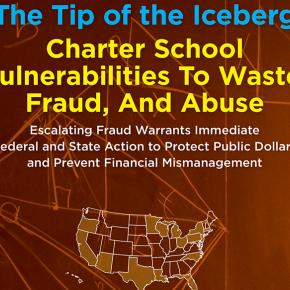Black Community Seeks the Power of the Ballot
For black communities in the United States, presidential election participation rates are strong and momentum is building.
In 2012, black voters showed up at the polls in the largest...
For black communities in the United States, presidential election participation rates are strong and momentum is building.
In 2012, black voters showed up at the polls in the largest numbers (66.2 percent) and voted at a higher rate than non-Hispanic whites (64.1 percent) for the first time since rates were published by the U.S. Census Bureau in 1996.
Black Americans tend to vote Democratic in presidential elections. This was true by historic margins in President Barack Obama's 2008 and 2012 victories
- 95 and 93 percent, respectively. And their turnout rate in 2016 could be an important factor in deciding the next president of the United States, especially in a tight race.
That's good news for black community leaders who want to ensure their voices are heard and hold future leaders accountable.
The 2014 and 2015 cases of deadly police force against unarmed African-Americans have galvanized a tech-savvy generation of activists to inject new life in an age-old push for racial, economic and social equality.
More and more, movements such as Black Lives Matter are becoming international household names and are holding candidates accountable to specifically address and push for legislation on these issues.
One such organization, Black Alliance for Just Immigration (BAJI), engages and advocates on behalf of African-American and black immigrant communities on issues of racial justice and immigrant rights.
BAJI's policy and legal manager, Carl Lipscombe, says part of the greater push nationwide to organize and bring to light instances of police brutality results from what he describes as a community-wide fear of "being killed when walking to the corner." He says these police cases are enhanced by the advent of social media and by the ability to capture events on camera that wasn't possible in the 1980s.
Lipscombe says candidates must do more than "throw a bone" if they expect communities of color to go to the polls in droves.
"It's not enough to just say we want free education for everyone," Lipscombe said. "We want to know how this is going to impact black people."
According to the U.S. Bureau of Labor Statistics, the unemployment rate among blacks in the United States, at 9.4 percent, remains significantly higher
- nearly double
- than the overall rate of 5 percent nationwide.
Black wealth also has declined. The non-partisan Economic Policy Institute, in coordination with the liberal research institution Center for Popular Democracy, reports that black workers' wages have fallen by 44 cents on the hour in the past 15 years, while wages of both Hispanic and white workers have increased by approximately the same amount.
The Migration Policy Institute reports that black immigrants from Africa are better educated than the overall U.S. population, age 25 and older.
In 2007, 38 percent held a four-year degree or more, compared to 27 percent of the U.S. population. Yet, black immigrants earn lower wages and hold the highest unemployment rate in comparison to other immigrant groups, according to the Center for American Progress.
Bakary Tandia, case manager and policy advocate at African Services Committee, a Harlem-based agency dedicated to assisting African immigrants, refugees and asylees, says progress is necessary across all levels of government.
"Even if you take the case of [New York City Mayor Bill] de Blasio," Tandia said, "he is a progressive mayor, but in his administration, I have not seen any African immigrant appointed or in a meaningful position, and the same thing goes at the state level, at the federal level."
Grass-roots coordinators say anti-immigration rhetoric among some presidential candidates has fueled electoral participation, as well as greater community leadership.
Steve McFarland, whose organizing efforts include get-out-the-vote campaigns among disenfranchised communities in New York, says the immigration reform movement, combined with the work of Black Lives Matter, has produced a new generation of civil rights leaders.
"It doesn't look the way that it used to look," McFarland said. "It's not big organizations, but they can mobilize people, they have a clear voice, and they are winning changes across the country."
Ahead of the 2016 presidential primaries, there is good news for Democratic frontrunner and former secretary of state Hillary Clinton. She currently enjoys an 80 percent favorability rating among adult blacks, the highest positive net rating of all candidates, according to a recent Gallup poll.
Clinton, who has met privately with Black Lives Matters activists, specifically addressed racial profiling in an October speech at Clark Atlanta University.
"Race still plays a significant role in determining who gets ahead in America and who gets left behind," Clinton said. "Racial profiling is wrong, demanding, doesn't keep us safe or help solve crimes. It's time to put that practice behind us."
Source: Hong Kong Herald
Proposed Legislation Could Grant State Citizenship to Undocumented Immigrants
SILive.com - June 16, 2014, by Ryan Lavis - With the legislative session in Albany scheduled to end this week, one New York lawmaker is pushing legislation that would grant sweeping rights of...
SILive.com - June 16, 2014, by Ryan Lavis - With the legislative session in Albany scheduled to end this week, one New York lawmaker is pushing legislation that would grant sweeping rights of citizenship to millions of illegal immigrants and non-citizens, including the right to vote and access to healthcare.
The New York Is Home Act, sponsored by Bronx state Senator Gustavo Rivera, would provide benefits to non-citizens who meet certain criteria.
Requirements include proof of residence in New York state for at least 3 years, pledges to abide by New York laws and uphold the state constitution, as well as a willingness to serve on New York juries. Additionally, non-citizens would also have had to pay state taxes for at least 3 years.
After meeting these criteria, non-citizens would receive a form of state citizenship that includes the right to vote in all state and local elections and hold certain public offices. Additionally, they would have access to college financial aid and health insurance programs, and the ability to apply for drivers and professional licenses, according to a summary of the bill.
Staten Island Assemblywoman Nicole Malliotakis (R-East Shore/Brooklyn) opposed the bill.
"Extending the privilege of voting to those in our country illegally devalues United States citizenship and further erodes the incentive to enter the country through safe and proper channels," Ms. Malliotakis said in a statement. "While some of us are fighting to protect taxpaying citizens, others are looking to give rights and benefits to non-citizens. It is a shame that during these last days of session, this is the priority of some legislators."
State Sen. Diane Savino (D-North Shore/Brooklyn) questioned the logistics of the bill, and noted the responsibility of such immigration reform should ultimately fall on Congress.
"These are issues that rightfully belong to the federal government, and we need a Congress more willing to develop comprehensive solutions to citizenship," Sen. Savino said.
According to the bill, this legislation would not interfere with the federal government's authority to regulate immigration.
The bills sponsor told the Daily News that he does not expect his legislation to pass anytime soon.
"Obviously this is not something that's going to pass immediately, but nothing as broad as this or as bold as this passes immediately," Sen. Gustavo Rivera (D-Bronx), told the Daily News.
Source
Debbie Lesko wins Arizona congressional race, leaves Republicans anxious about the fall

Debbie Lesko wins Arizona congressional race, leaves Republicans anxious about the fall
Ady Barkan, the California man with ALS who confronted Sen. Jeff Flake, R-Arizona, over health care issues last year, started an organization to oppose GOP health care policies and raised money...
Ady Barkan, the California man with ALS who confronted Sen. Jeff Flake, R-Arizona, over health care issues last year, started an organization to oppose GOP health care policies and raised money for Tipirneni. "There is no such a thing as a safe Republican seat this year. Dr. Hiral Tipirneni overcame the odds to come within striking distance of victory in a deep red district, because the Republicans put their donors' greed ahead of the health of families like mine," Barkan said Tuesday.
Read the full article here.
Fed's Williams vows more transparency after meeting with Fed Up
San Francisco Fed President John Williams has promised more transparency after a rare meeting with a coalition of community and labor groups which also urged the U.S. central banker to keep...
San Francisco Fed President John Williams has promised more transparency after a rare meeting with a coalition of community and labor groups which also urged the U.S. central banker to keep interest rates low.
Williams largely dismissed their call to hold off on interest-rate hikes, repeating his mantra that monetary policy will depend on economic data. But he said the meeting earlier this week pushed him to "think a little more proactively" about how the Fed recruits and promotes top management.
"I want the Fed to be more transparent," Williams said in an interview. "We've learned along the way that this process of selecting presidents and other aspects of the Fed are not that clear to the public. We should make it more open."
While the San Francisco Fed is not searching for a president or first vice-president, "we want to make sure not only are we doing it right, but also in the future maybe to move the ball forward even further," he said.
He noted that the Minneapolis Fed's openness about its ongoing presidential search is one example to learn from.
The Fed's perceived opaqueness has drawn increasing fire in recent months, with Fed Chair Janet Yellen in testimony this week standing her ground against Congressional efforts to subject the Fed to more oversight. Regional Fed banks' executive searches are also under scrutiny for apparent insularity.
Williams said the meeting also reminded him that despite strengthening overall economic growth, there are "a significant number of people who are left behind and struggling."
One example is Ebony Isler, who ran a hairdressing business until recession-hit clients could not afford her services.
Now, as a part-time cashier at the San Francisco Giants' downtown ballpark, she relies on high-interest loans to bridge her paydays.
"I can't find a job that pays me enough to be self-sufficient," Isler said in an interview after she and a dozen other members of the non-profit group Fed Up met with Williams on Monday.
The group, which first grabbed national attention last summer when it crashed the Kansas City Fed's annual central bankers' meeting in Jackson Hole Wyoming, presented Williams a report arguing that as long as inflation and wage growth remains dull, the Fed should keep rates near zero. (/news/mind-gap-how-federal-reserve-can-help-raise-wages-america-s-women-and-men)
Williams regularly meets with bankers and chief executives.
Meeting with activists, he said, "helps you to think concretely about why are people out of the labor force, what are the problems they are facing."
The group has also sat down with Yellen, Kansas City Fed President Esther George and Boston Fed chief Eric Rosengren.
Source: CNBC
Groups demand recovery money for Puerto Rico
The Center for Popular Democracy and Make the Road CT plan to deliver postcards at the Bridgeport office of U.S. Rep. Jim Himes, D-4, demanding Congress "have a heart" and send an aid package to...
The Center for Popular Democracy and Make the Road CT plan to deliver postcards at the Bridgeport office of U.S. Rep. Jim Himes, D-4, demanding Congress "have a heart" and send an aid package to Puerto Rico with no additional oversight or austerity measures.
"The efforts also preview a larger mobilization on the 6-month anniversary of Hurricane Maria, when hundreds of activists from across the country will travel to Washington, D.C. to demand a comprehensive aid package for Puerto Rico that does not impose more austerity, oversight or privatization," said Julio López Varona, a spokesman for the group.
Read the full article here.
Texas’ War on Local Control is Part of National Trend
Nearly 150 progressive officials gathered in Austin last weekend to build the fight against GOP-controlled state legislatures.
...
Nearly 150 progressive officials gathered in Austin last weekend to build the fight against GOP-controlled state legislatures.
Read the full article here.
The Business of Change: Consumer Movements Pour on the Pressure

The Business of Change: Consumer Movements Pour on the Pressure
Consumer campaigns have existed for more than a century, but the Trump presidency has galvanized activists and accelerated their work.
...
Consumer campaigns have existed for more than a century, but the Trump presidency has galvanized activists and accelerated their work.
Read the full article here.
Explosion of Gig Economy Means There’s an App for Juggling Jobs
One of the reasons Mustafa Muhammed finally broke down and bought a smartphone was because he needed to find a job.
The 57-year-old cook was tired of using a...
One of the reasons Mustafa Muhammed finally broke down and bought a smartphone was because he needed to find a job.
The 57-year-old cook was tired of using a library computer to look for work and watching friends get a jump on leads via alerts on their phones. After picking up his first phone about two years ago, he downloaded a mobile app called Snagajob. This summer he landed a gig at a new IHOP opening in Harlem after seeing it pop up in his inbox.
“This is job No. 2,” says Muhammed, who also works in the dining hall at Fordham University. “I wanted to pick up a little something extra for the summer. I don’t like to be lazy.”
Snagajob is one of a slew of apps that have sprung up in recent years to serve the so-called gig economy. This year alone human-resources startups have attracted $1.2 billion in venture capital, with much of the funding going to companies designed to profit from the fluid nature of temporary or contract work, according to research firm CB Insights. In an election year dominated by concerns over economic inequality, Hillary Clinton and Donald Trump are pledging to generate more full-time jobs. But Silicon Valley is betting the gig economy is here to stay.
“Two or three years ago, it was pretty rare to have more than one job” says Snagajob.com Inc. Chief Executive Officer Peter Harrison. “Now it’s really very common. What we are really building our business on is the blurring of the line between snagging a job and snagging a shift.”
Founded in 2000 as an online job board focused on “lightly skilled” hourly work, Snagajob says it has nearly doubled revenue derived from employers in the past three years. It claims 10 million unique monthly users and about 425 employees. In June, the Virginia company unveiled a mobile messaging app that lets employers assign shifts and lets workers trade them.
Snagajob charges employers for the number of clicks, applicants, interviews and hires it lines up. It also sells annual subscriptions for use of its hiring software. Harrison, 53, declines to specify revenue but says Snagajob is breaking even. In February, the startup raised $100 million to develop new features and fund acquisitions. The same month, Snagajob announced a partnership with LinkedIn, which has typically represented salaried professionals, to share research and data on hourly workers.
Similar apps are taking off in Europe, as well. Spain, with a large service sector and 20 percent unemployment, has become a testing ground for startups bringing the simplicity of swipes, geolocation and people-matching algorithms to hourly job recruitment. Three of them -- Job Today, Jobandtalent and CornerJob -- have raised some $87 million combined this year.
Job Today helps restaurants and retail mom-and-pops find and interview waiters, sales associates and drivers. Employers can post as many jobs as they like and have 24 hours to shortlist candidates, after which they use a chat feature to discuss the job and schedule face-to-face interviews. Posting a position on Job Today is gratis for now. Eventually, it plans to sell subscriptions that will let employers browse candidates and post jobs on an unlimited basis. The startup says it has about 100,000 business customers and has processed 15 million job applications since its founding a year ago.
Workforce trends are moving in favor of these apps as more people prefer to choose their own hours. In the U.S., even if they would rather work full-time, government policy has increased the incentive for companies to hire temps and contract workers, Snagajob’s Harrison says. To avoid providing health care as mandated by Obamacare, many businesses deliberately ensure workers toil less than 30 hours a week. They may also prefer temps to avoid paying overtime now that the Obama administration has expanded eligibility to millions more Americans.
According to research from Harvard and Princeton universities, “alternative work arrangements” -- including temp work, on-call work, contractors, and freelancers -- accounted for all the net employment growth in the U.S. from 2005 to 2015. That trend is widely expected to continue.
“These new labor platforms are helping people deal with the volatility of their income and the volatility of work,” says Louis Hyman, a professor of economic history at Cornell University’s ILR School and author of a forthcoming book on the rise of temp work in the U.S. “The tech reflects social reality.” Snagajob’s Harrison says companies are “essentially sharing workers” much the way consumers are sharing car rides and vacation rentals.
A handful of large deals, crowned by Microsoft’s $26 billion acquisition of LinkedIn, has fueled investor enthusiasm. In June, Monster Worldwide Inc. bought San Francisco-based Jobr, which applies Tinder-like matching algorithms to job hunters and employers. Last month, Tokyo’s Recruit Holdings, which controls top-ranked job search site Indeed Inc., bought Simply Hired, which operates a global network of job search engines.
Of course, not everyone is as enamored of the gig economy as the tech industry. “This glorification of flexibility is not in line with the reality of what most working people really want,” says Carrie Gleason, who runs the Fair Workweek Initiative, a network of activist groups that has pushed for laws to support predictable scheduling and guaranteed hours in low-wage industries. Shift-swapping is “a survival tool,” she says. “It is not the ideal.”
By Polly Mosendz
Source
The Tip of the Iceberg: Charter School Vulnerabilities To Waste, Fraud, And Abuse
The Tip of the Iceberg: Charter School Vulnerabilities To Waste, Fraud, And Abuse
Escalating Fraud Warrants Immediate Federal and State Action to Protect Public...
The Tip of the Iceberg: Charter School Vulnerabilities To Waste, Fraud, And AbuseEscalating Fraud Warrants Immediate Federal and State Action to Protect Public Dollars and Prevent Financial MismanagementDownload the report hereApril 2015Executive SummaryA year ago, the Center for Popular Democracy (CPD) issued a report demonstrating that charter schools in 15 states—about one-third of the states with charter schools—had experienced over $100 million in reported fraud, waste, abuse, and mismanagement. This report offers further evidence that the money we know has been misused is just the tip of the iceberg. Over the past 12 months, millions of dollars of new alleged and confirmed financial fraud, waste, abuse, and mismanagement in charter schools have come to light, bringing the new total to over $200 million.Despite the tremendous ongoing investment of public dollars to charter schools, government at all levels has failed to implement systems that proactively monitor charter schools for fraud, waste, abuse, and mismanagement. While charter schools are subject to significant reporting requirements by various public offices (including federal monitors, chartering entities, county superintendents, and state controllers and auditors), very few public offices regularly monitor for fraud.The number of instances of serious fraud uncovered by whistleblowers, reporters, and investigations suggests that the fraud problem extends well beyond the cases we know about. According to standard forensic auditing methodologies, the deficiencies in charter oversight throughout the country suggest that federal, state, and local governments stand to lose more than $1.4 billion in 2015.b 1 The vast majority of the fraud perpetrated by charter officials will go undetected because the federal government, the states, and local charter authorizers lack the oversight necessary to detect the fraud.Setting up systems that detect and deter charter school fraud is critical. Investments in strong oversight systems will almost certainly offset the necessary costs. We recommend the following reforms:
Mandate audits that are specifically designed to detect and prevent fraud, and increase the transparency and accountability of charter school operators and managers. Clear planning-based public investments to ensure that any expansions of charter school investments ensure equity, transparency, and accountability. Increased transparency and accountability to ensure that charter schools provide the information necessary for state agencies to detect and prevent fraud.State and federal lawmakers should act now to put systems in place to prevent fraud, waste, abuse and mismanagement. While the majority of state legislative sessions are coming to an end, there is an opportunity to address the charter school fraud problem on a federal level by including strong oversight requirements in the Elementary and Secondary Education Act (ESEA), which is currently being debated in Congress. Unfortunately, some ESEA proposals do very little reduce the vulnerabilities that exist in the current law. If the Act is passed without the inclusion of the reforms outlined in this report, taxpayers stand to lose millions more dollars to charter school fraud, waste, abuse, and mismanagement.Download the report here
Multiple Arrests In Midtown During May Day Protests Outside Banks

Multiple Arrests In Midtown During May Day Protests Outside Banks
Hundreds of labor and immigrant advocates marched through east midtown early Monday in a demonstration against corporations which they say are profiting from President Trump's agenda—one of a ...
Hundreds of labor and immigrant advocates marched through east midtown early Monday in a demonstration against corporations which they say are profiting from President Trump's agenda—one of a series of May Day protests scheduled to take place throughout the city (and beyond) on Monday.
The specific targets of this action, according to organizers from Make The Road New York, are the Wall Street banks that help finance private prisons and immigrant detention centers. To that end, organizers said twelve protesters were arrested for peaceful civil disobedience while blocking the entrances outside of JPMorgan Chase, which is one of the companies named in Make The Road's and the Center for Popular Democracy's Backers Of Hate campaign.
Read full article here.











2 months ago
2 months ago